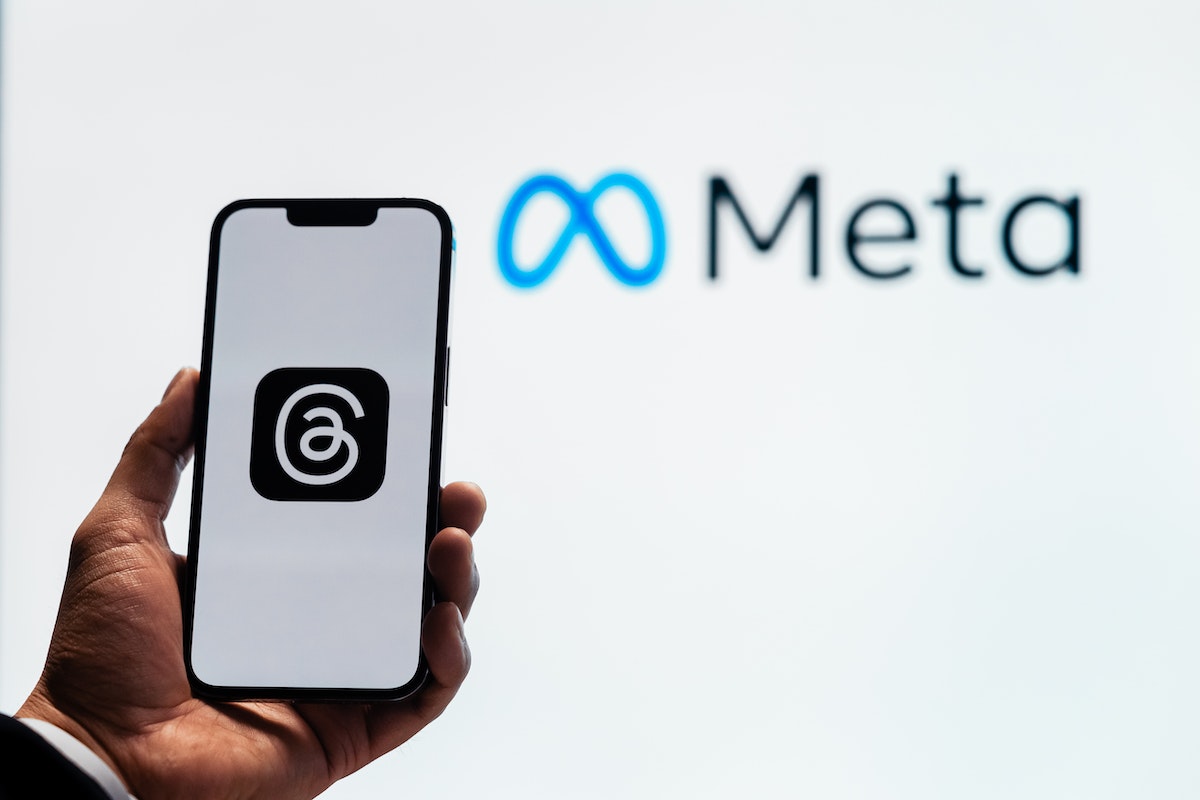What is Facebook changing its name to?
The social media giant has rebranded itself to Meta in an attempt to reflect its evolving business strategy.
The name change was made public by Facebook CEO Mark Zuckerberg during the Facebook Connect conference on October 28, 2021.
The company’s rebranding to Meta is a reflection of its new focus on the metaverse, a virtual world where users can interact with each other through augmented and virtual reality.
According to Zuckerberg, the metaverse is the “next generation of the internet,” and Facebook wants to be at the forefront of its development.
The company’s new name is intended to reflect its broader vision and encompass all of its various products, including Oculus, WhatsApp, and Instagram.
So, if you’re wondering why Facebook has changed its name, it’s because the company is looking to expand beyond social media and into the world of virtual reality.
Post Contents
Why is Facebook Changing Its Name

You may have heard that Facebook is changing its name. This is a significant move, and you might be wondering why the company is doing it.
Here are some reasons that might help you understand the change.
Firstly, Facebook’s CEO Mark Zuckerberg has been talking about the company’s evolution beyond social media for a while now.
The new name is part of this evolution.
The company wants to reflect its broader focus on building the metaverse, which is a virtual world that goes beyond social media.
The new name will better reflect the company’s vision for the future.
Secondly, the rebrand is an attempt to distance the company from the negative press and controversies it has faced in recent years.
The company has been under scrutiny for its handling of user data, misinformation on its platform, and its impact on mental health.
By changing its name, the company hopes to start fresh and rebuild its reputation.
Thirdly, the new name is an opportunity for the company to unify its various products and services under one umbrella.
Facebook owns several popular apps, including Instagram and WhatsApp.
The new name will bring all of these products and services together, making it easier for users to understand the company’s offerings.
What is Facebook Changing its Name to?
Facebook is changing its name to Meta. Mark Zuckerberg, the CEO of Facebook, announced the new name in a video presentation.
The name change is part of a major rebranding effort that aims to better “encompass” what the company does.
Meta is a term that refers to the concept of the “metaverse,” a futuristic and vaguely defined virtual world that combines elements of virtual reality and augmented reality.
The metaverse is a vision of a fully immersive digital world that people can enter and interact with in the same way they do the physical world.
The metaverse is not a new concept, but it has gained more attention in recent years as advancements in technology have made it more possible.
Facebook has been working on developing the metaverse for some time, and the name change to Meta reflects the company’s commitment to this vision of the future.
The metaverse is expected to have a significant impact on many industries, including entertainment, gaming, and social media.
Facebook hopes to be at the forefront of this new digital world and has already invested heavily in virtual reality and augmented reality technologies.
Understanding the Metaverse
You may have heard the term “metaverse” being thrown around lately, especially since Facebook recently announced its new name, Meta. But what exactly is the metaverse?
Simply put, the metaverse is a virtual world that combines aspects of social media, online gaming, augmented reality, virtual reality, and cryptocurrencies.
It allows users to interact with each other in a virtual space, represented by avatars, and engage in various activities such as shopping, gaming, attending events, and more.
Think of the metaverse as a massive, interconnected network of virtual spaces that you can explore and interact with.
It’s like a giant online playground where you can connect with people from all over the world and experience things that may not be possible in the real world.
One of the key features of the metaverse is the ability to create and customize your own avatar.
This virtual representation of yourself can be personalized to your liking and used to interact with others in the virtual world.
The metaverse is not a new concept, but recent advancements in technology have made it more accessible and immersive than ever before.
With the rise of virtual reality and augmented reality, the metaverse is becoming more and more realistic, blurring the lines between the virtual and real world.
In the metaverse, you can do things like attend virtual concerts, participate in online gaming tournaments, and even attend virtual meetings and conferences.
It’s a world where the possibilities are endless, and the only limit is your imagination.
Other Brands under Meta
Under the new name of Meta, Facebook will encompass all its existing brands, including Instagram, WhatsApp, Oculus, and Reality Labs.
The company’s rebranding aims to better reflect its vision of building a metaverse, a virtual world where people can interact in real-time.
Instagram, the popular photo-sharing app, will continue to operate under its current name and branding.
However, it will be part of the Meta family and will contribute to the development of the metaverse.
Instagram has over 2 billion monthly active users, and it is one of the most popular social media platforms worldwide.
WhatsApp, the messaging app, will also be part of the Meta family.
The app has over two billion monthly active users and is widely used worldwide.
WhatsApp will continue to operate under its current name and branding, but it will also contribute to the development of the metaverse.
Oculus, the virtual reality company, will be part of the Meta family as well.
Oculus will continue to develop and sell virtual reality hardware and software, but it will also contribute to the development of the metaverse.
Oculus has been a subsidiary of Facebook since 2014, and it has released several virtual reality headsets.
Reality Labs, the research division of Facebook, will also be part of the Meta family.
Reality Labs is responsible for developing augmented reality and virtual reality technologies.
It will play a crucial role in the development of the metaverse, and it will contribute to building the infrastructure needed for people to interact in real-time.
Comparison with Other Tech Giants

You may be wondering how Facebook’s name change to Meta compares to other tech giants.
Let’s take a look at some of the big players in the industry and see how they stack up.
Google (now Alphabet)
Google is one of the largest and most well-known tech companies in the world.
In 2015, Google restructured its business and created a new parent company called Alphabet. Google now operates as a subsidiary of Alphabet.
This restructuring allowed the company to focus on its core businesses while also exploring new areas of growth.
Snapchat (now Snap)
Snapchat, the popular social media app, changed its name to Snap in 2016.
The name change was part of the company’s efforts to expand beyond its original app and into other areas, such as hardware, like its Spectacles glasses.
Apple
Apple, known for its iconic products like the iPhone and Mac computers, has never changed its name.
However, the company has undergone several logo redesigns over the years, most recently in 2020.
Apple’s logo is now a simple, monochromatic design that reflects the company’s focus on simplicity and elegance.
Meta (formerly Facebook)
Meta’s name change is unique in that it reflects a shift in the company’s focus from social media to the metaverse.
While the company’s flagship product, Facebook, will still be a major part of its business, Meta’s new name and mission signal a broader ambition to create a virtual world that goes beyond social networking.
Controversies Surrounding Facebook
Facebook has been at the center of several controversies over the years.
Recently, the company has been in the news for its handling of misinformation, data privacy, and its impact on mental health.
Here is a brief overview of some of the controversies surrounding Facebook:
Frances Haugen, a former Facebook employee, has blown the whistle on the company’s practices.
She has leaked internal documents to the media, which have been dubbed the “Facebook Papers.”
These documents reveal that Facebook is aware of the harm its products cause, but the company has not taken any steps to address these issues.
Misinformation is a major problem on Facebook.
The platform has been used to spread false information about the COVID-19 pandemic, the 2020 US Presidential Election, and other important events.
Facebook has been criticized for not doing enough to combat misinformation on its platform.
The Cambridge Analytica scandal was a major blow to Facebook’s reputation.
The political consulting firm obtained data on millions of Facebook users without their consent.
This data was used to influence the 2016 US Presidential Election. Faceboo
k has since made changes to its data privacy policies, but the damage to its reputation has already been done.
Facebook has also been criticized for its impact on mental health.
Studies have shown that social media use can lead to feelings of depression, anxiety, and loneliness.
Facebook has been accused of contributing to these negative effects by creating an addictive platform that encourages users to spend more time online.
Implications of the Rebranding
Facebook’s decision to change its name to Meta has significant implications for the company and its various entities.
Here are some of the most notable implications of the rebranding:
Brand and Company Name
The new name, Meta, reflects the company’s vision for the future of the internet, which is focused on creating a metaverse, a virtual world where people can interact in real-time.
The rebranding is a strategic move to distance the company from the negative publicity it has received over the years.
The new name also allows the company to expand into new areas beyond social media, such as virtual reality, augmented reality, and artificial intelligence.
Social Media
Facebook’s social media platform will remain the same, and users will continue to use the same app and website.
However, the company’s focus will shift to building the metaverse, which will require significant investment in new technologies and infrastructure.
The company’s social media platform will likely be integrated into the metaverse, allowing users to interact with each other in a more immersive way.
Product and Company Brand
The rebranding is not just a change in name; it is a change in the company’s focus and direction.
The company’s new mission is to build the metaverse, and all its products and services will be geared towards achieving this goal.
The company’s brand will also change to reflect this new direction, with a new logo and visual identity.
Stock Ticker
Facebook’s stock ticker will change from FB to MVRS, reflecting the company’s new focus on the metaverse.
The change in ticker symbol will not affect the company’s financial performance, but it may take some time for investors to get used to the new symbol.
Challenges for Meta
As Meta, formerly known as Facebook, moves towards building a metaverse, it is likely to face several challenges.
Here are some of the challenges that Meta may face:
Privacy Concerns
Privacy has been a major concern for social media companies, and Meta is no exception.
With the company’s recent name change and focus on building a metaverse, lawmakers and critics are likely to scrutinize Meta’s privacy policies even more closely.
Meta will have to ensure that its metaverse is safe and secure for users and that their data is protected.
Controversy
Meta’s name change has already been met with controversy, with some people questioning the company’s motives.
Critics have accused Meta of trying to distance itself from its past scandals and controversies.
Meta will have to address these concerns and convince users that its new focus on the metaverse is genuine.
Legal Challenges
Meta may face legal challenges as it moves towards building a metaverse. For example, lawmakers may question whether Meta’s metaverse violates antitrust laws.
Additionally, Meta may face legal challenges from other companies that have already trademarked the term “meta.”
Congress Scrutiny
Congress may also scrutinize Meta’s new focus on the metaverse.
Lawmakers may question whether Meta’s metaverse poses a threat to national security or if it could be used to spread misinformation and propaganda.
The Future of Meta

So, what does the future hold for Meta? As the parent company of Facebook, Instagram, and WhatsApp, Meta has a lot of influence in the world of social media.
With the recent name change, Meta has signaled that it is looking to expand beyond just social media and into the realm of the metaverse.
Under the leadership of CEO Mark Zuckerberg, Meta has already invested over $10 billion in developing the metaverse.
This virtual world is envisioned as a place where people can interact with each other in a more immersive and engaging way than is currently possible on the internet.
To achieve this goal, Meta is developing a range of hardware and software technologies that will enable people to access the metaverse from anywhere.
This includes things like virtual reality headsets, augmented reality glasses, and other devices that can create a more immersive experience.
One of the key areas where Meta is focusing its efforts is in gaming.
The company believes that gaming will be a major driver of the metaverse, and is investing heavily in developing games that can be played in this virtual world.
But gaming is just the beginning. Meta sees the metaverse as a place where people can work, learn, and socialize in ways that are currently impossible.
As more people come online and start to interact with each other in this virtual world, the possibilities for what can be achieved are truly limitless.
Key Takeaways
If you’ve been following the news, you probably already know that Facebook is changing its name to Meta.
Here are some key takeaways to help you understand what this means:
- The new name reflects a shift in focus for the company. Facebook has been talking a lot about the metaverse lately, which is a futuristic concept that involves creating immersive digital environments that people can interact with in a variety of ways. By changing its name to Meta, Facebook is signaling that it sees the metaverse as a key part of its future.
- The change is not just cosmetic. Facebook is planning to invest heavily in developing the metaverse, which it sees as a new frontier for social media and online interaction. This could involve everything from virtual reality headsets to new ways of interacting with digital content.
- The move has been met with some skepticism. Critics have pointed out that Facebook has a poor track record when it comes to user privacy and safety, and that the metaverse raises a number of new ethical concerns. Some have also questioned whether the metaverse is really the next big thing in tech, or just a buzzword that will fade away in a few years.
- It’s not the first time Facebook has changed its name. In the past, the company has rebranded some of its other products, such as Instagram and WhatsApp, to make it clearer that they are part of the Facebook family. However, changing the name of the entire company is a much bigger move, and reflects the company’s ambition to be a leader in the tech industry for years to come.
Overall, the name change is a sign that Facebook is looking to the future and sees the metaverse as a key part of that future.
Whether the company can overcome its past controversies and succeed in this new arena remains to be seen, but it’s clear that the tech world will be watching closely to see what happens next.






























